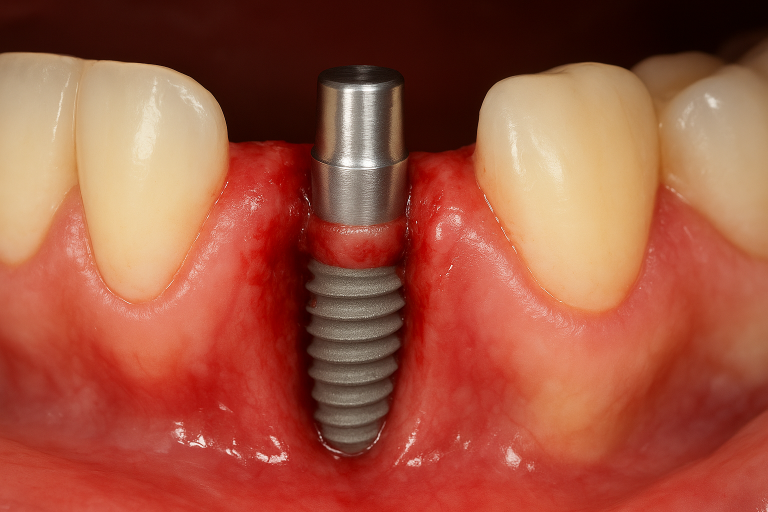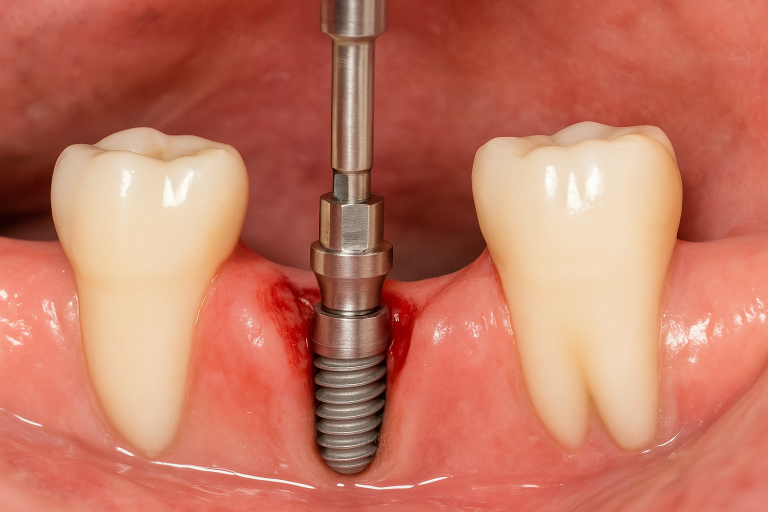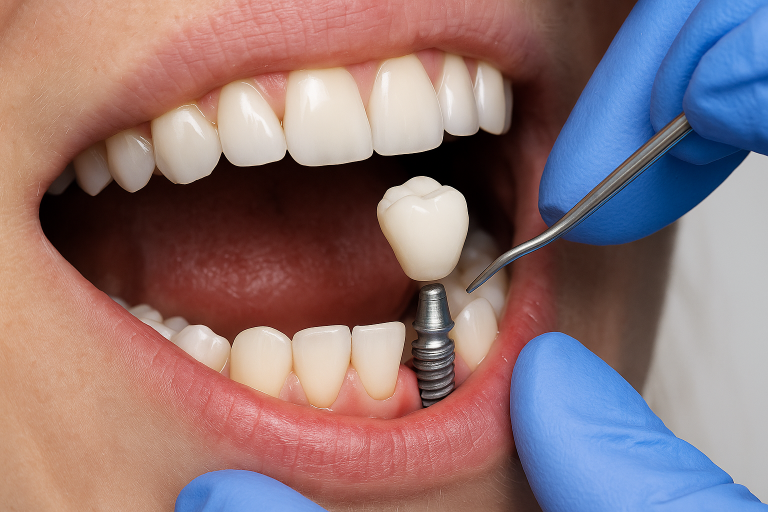Regain your smile and confidence
Dental Implants
Why choose dental implants?
- Stable and permanent replacement – Implants are anchored directly in the bone, providing a secure and durable solution.
- Natural functionality – Chew, speak, and smile without discomfort, just like with natural teeth.
- Superior aesthetics – The crown placed on the implant perfectly mimics the shape and color of a healthy tooth.
- Prevents bone loss – Stimulates the jawbone and prevents the bone resorption caused by missing teeth.
- No impact on adjacent teeth – Does not require shaving down neighboring teeth, unlike traditional bridges.
- Long-term investment – With proper care, implants can last a lifetime.
Dental Implants
Types
Dental implants are modern medical devices designed to replace the root of a missing tooth, providing a solid foundation for a crown, bridge, or denture. They restore both function and aesthetics to the smile. Multiple types of dental implants are available on the market, each with specific features in terms of material, shape, and technology.
Titanium Implants (Standard)
Titanium implants are the most widely used worldwide due to their excellent reliability and biocompatibility. They consist of a titanium screw that integrates into the jawbone through a process called osseointegration.
Advantages:
- High compatibility with the body, minimal risk of rejection.
- Exceptional durability – can last for decades.
- Suitable for most clinical cases, regardless of location.
Ceramic Implants (Zirconia)
Ceramic implants are made from zirconium oxide, a white material ideal for patients with metal allergies or those seeking flawless aesthetics.
Advantages:
- Superior aesthetics – color closely matches natural teeth and gums.
- Metal-free – 100% biocompatible, no risk of corrosion.
- Recommended for the front zone or for patients sensitive to titanium.
Short Implants
Short implants have a reduced length and are used when the jawbone volume is limited and bone grafting is not desired.
Advantages:
- Less invasive intervention, no need for bone grafting.
- Faster recovery and shorter treatment duration.
- An effective alternative for patients with moderate bone atrophy.
Zygomatic Implants
Zygomatic implants are longer than standard implants and anchor into the zygomatic bone (cheekbone), used in extreme cases of bone loss in the upper jaw.
Advantages:
- Advanced solution for patients with severe bone atrophy.
- No need for complex bone grafting.
- Allows restoration of the entire upper arch in a single procedure.
All-on-4 / All-on-6 Implants
These implant systems allow replacement of all teeth on one arch (upper or lower) with just 4 or 6 implants, onto which a fixed prosthesis is attached.
Advantages:
- Rapid solution for full smile restoration.
- High stability even in weakened bone.
- Excellent aesthetic and functional results in a short time.
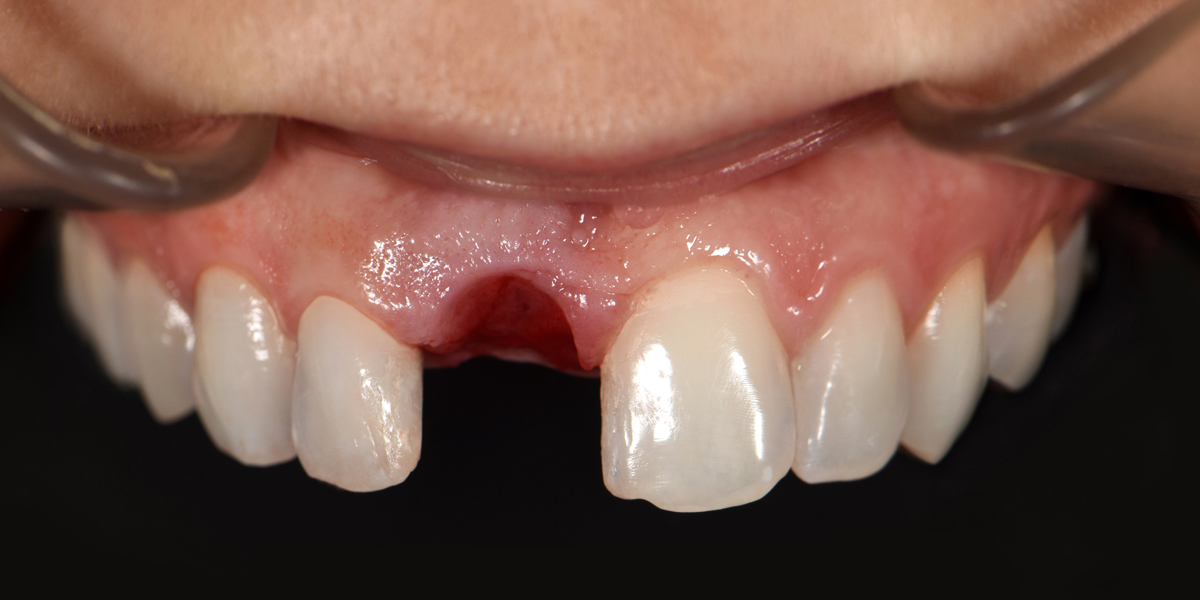
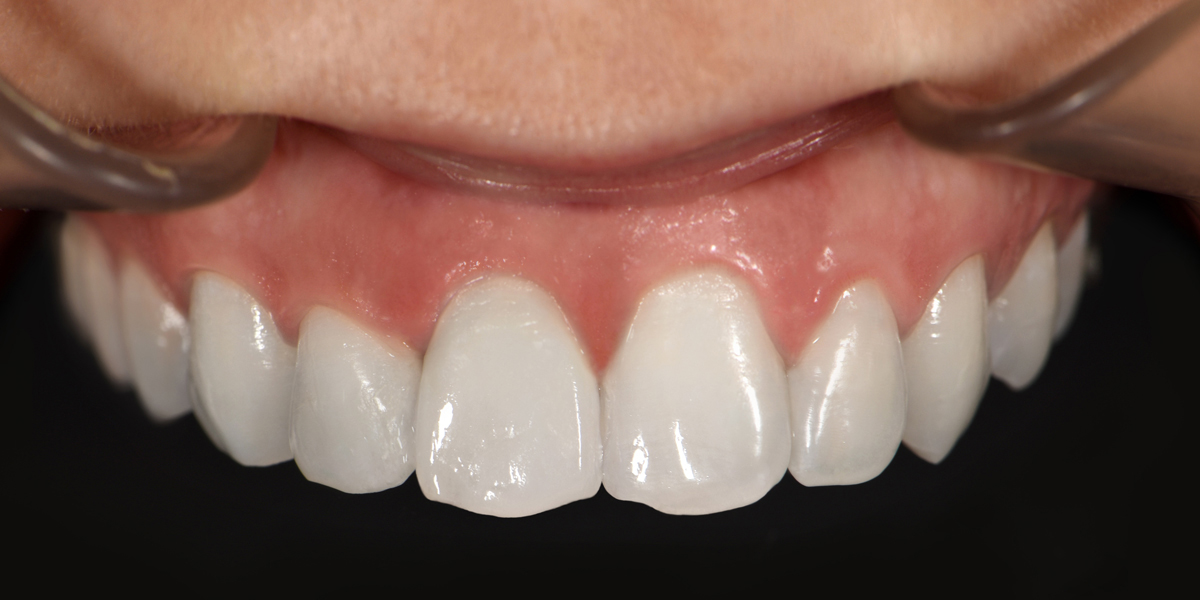
Dental Implants
Frequently Asked Questions
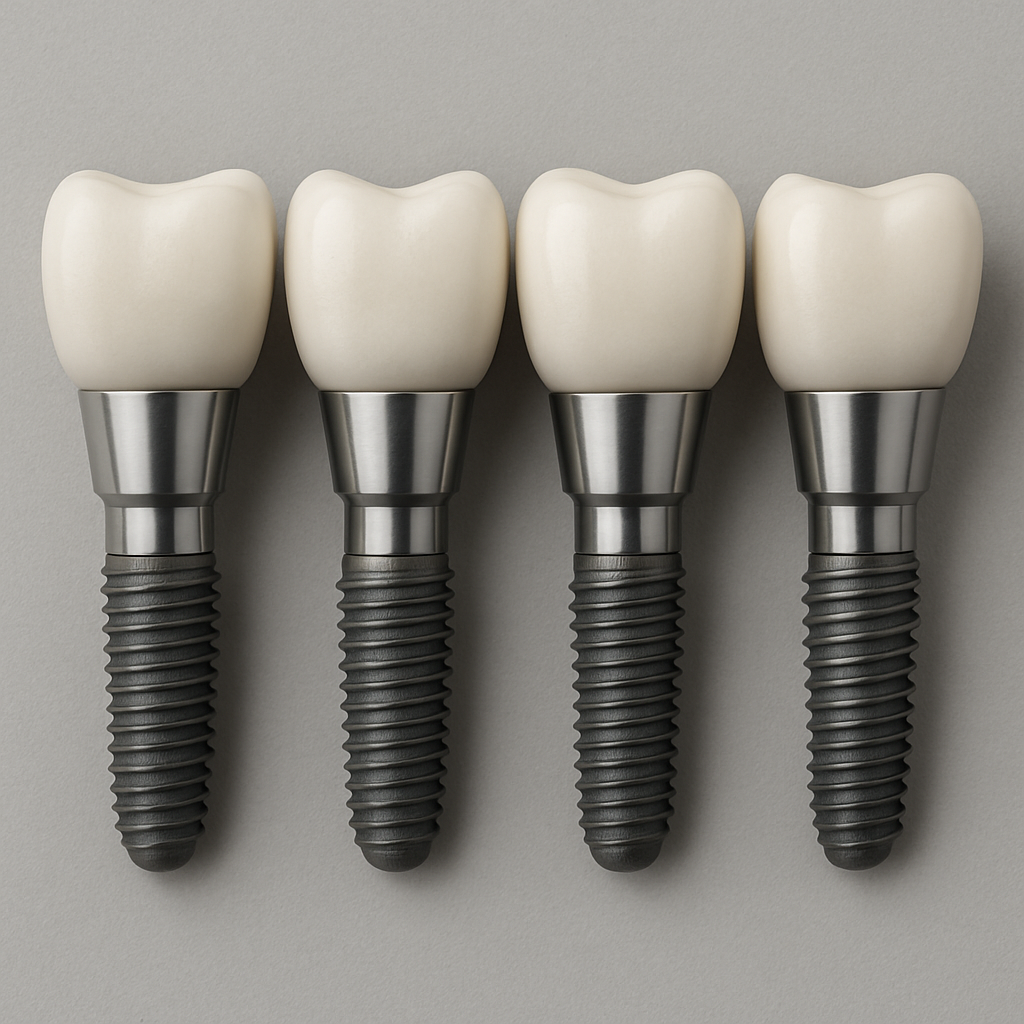
What is a dental implant?
A dental implant is a titanium or zirconia screw that is surgically placed into the jawbone to replace the root of a missing tooth. It serves as a support for a dental crown, bridge, or denture, providing a fixed, stable, and aesthetic solution.
Components of a dental implant:
- The implant itself (the screw) – inserted into the bone
- The abutment – connects the implant to the crown
- The dental crown – the visible part that mimics a natural tooth
Who can benefit from dental implants?
Dental implants are recommended for:
- Patients who have lost one or more teeth
- Individuals with sufficient jawbone (or with the possibility of bone grafting)
- Patients with good oral hygiene
- Adults (after bone growth is complete – approx. 18 years old)
Relative or absolute contraindications:
- Uncontrolled systemic conditions (such as diabetes, severe osteoporosis)
- Bisphosphonate treatment (for osteoporosis)
- Heavy smoking
- Poor oral hygiene
- Pregnancy
What does the dental implant placement procedure involve?
Main stages:
- Consultation and planning – clinical examination, panoramic X-ray or CT scan
- Surgical procedure – implant placement into the bone under local anesthesia
- Osseointegration period – 3–6 months for healing and implant stabilization
- Placement of the abutment – after full integration
- Fabrication and placement of the dental crown – final restoration step
Total treatment duration: between 3 and 9 months, depending on complexity
Is the dental implant procedure painful?
No. The procedure is performed under local anesthesia, so the patient does not feel any pain. After the procedure, you may experience:
- Moderate discomfort
- Mild swelling
- A sensation of local pressure
These symptoms usually subside within a few days and can be managed with prescribed anti-inflammatory medication.
What is osseointegration?
Osseointegration is the biological process by which the dental implant fuses with the bone. It typically takes 3–6 months, depending on:
- The quality of the patient’s bone
- The location of the implant (mandible vs. maxilla)
- The surgical technique used
It is a crucial stage for the long-term stability and durability of the implant.
What is the lifespan of a dental implant?
- 15–25 years or even a lifetime
- Success depends on: oral hygiene, regular check-ups, and avoiding smoking
The dental crown attached to the implant may need replacement after 10–15 years due to aesthetic or functional reasons.
What are the risks associated with dental implants?
Dental implants have a success rate of over 95%, but there are some potential risks:
Short-term risks:
- Local infection
- Inflammation, swelling, or bleeding
- Reaction to anesthesia
Long-term risks:
- Implant loss (if osseointegration fails)
- Peri-implantitis (inflammation of the tissues around the implant)
- Crown or abutment fracture (rare)
These risks can be prevented through regular check-ups and proper oral hygiene.

Schedule a visit with
Dr. Ciobanu
Do you have an emergency? Quickly fill out the form below and access top-quality services tailored to your needs. We continuously optimize our processes to provide you with a simple and efficient experience.

Dental Implants
Prices
We offer the option to pay for your treatment in zero-interest installments over a period of six months through Easy Credit.
- Dental Implants



